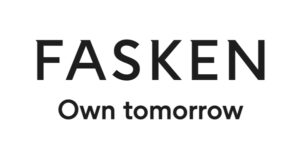In recent years, competition/antitrust enforcers around the world, including Canada, have taken a marked interest in private equity deals. As part of a broader global trend of tougher merger enforcement, private equity firms that have taken ownership positions (controlling or minority) in portfolio companies that are competitors have been subject to heightened scrutiny. The litigation and subsequent settlement in involving Canada’s Competition Bureau and Thoma Bravo is the most recent example.
The Transaction
On May 13, 2019, Thoma Bravo (a private equity firm based in the United States) acquired Aucerna, a Calgary-based company that supplies reserves software, known as Val Nav, to oil and gas producers.
Before the acquisition, Thoma controlled several software companies, including a company known as Quorum. Quorum supplies reserves software, known as MOSAIC, to oil and gas producers.
The Bureau’s Challenge
32 days after the transaction closed, the Bureau sought to unwind the transaction, alleging a substantial lessening of competition in the market for reserves software for oil and gas producers in Canada. By bringing Aucerna and Quorum under common ownership and control, the Bureau alleged a merger to monopoly among the two largest Canadian suppliers of reserves software. The Bureau identified Aucerna’s Val Nav software and Quorum’s MOSAIC software as built and developed specifically for the Canadian market, and further alleged international competition from Schlumberger and Halliburton as insufficiently tailored for Canadian customers.
The Resolution
Approximately two months later, the litigation settled by way of a Registered Consent Agreement before Canada’s Competition Tribunal. As part of the settlement, Thoma agreed to divest Quorum to a purchaser acceptable to the Bureau. The Bureau and Thoma agreed to the divestment of Quorum rather than any of the assets Thoma acquired from Aucerna through the transaction.
Lessons Learned
- Great Scrutiny of Private Equity: The Thoma Bravo litigation demonstrates that Canada is no exception to the growing global scrutiny of private equity deals. Whether taking controlling or minority interests, private equity firms need to analyze the antitrust/competition implications of their prospective transactions, whether or not the transaction is subject to pre-merger notification before the Bureau.
- Greater Scrutiny of Non-Notifiable Transactions: While not entirely clear, Thoma’s acquisition of Aucerna was likely not subject to pre-merger notification before the Bureau. The Bureau’s challenge of a non-notifiable transaction aligns with recent statements by the Bureau regarding its expanded Merger Intelligence and Notification Unit. The Bureau’s newly created Unit aims to identify non-notifiable transactions that may have competition concern. The Unit also aims to incentivize merging parties involved in competitively sensitive non-notifiable transactions to engage the Bureau pre-closing.
- Post-Closing Unwinding of Transactions: Most merger challenges by the Bureau take place pre-closing, thereby preventing the intermingling of the merger parties’ businesses. The Bureau actions – seeking to unwind a transaction over a month post-closing – represents a rare exercise of discretion and a signal that no comfort should be taken from the lack of a pre-merger challenge by the Bureau.
Please contact any member of our Competition or Private Equity Group to discuss this development to ensure that appropriate consideration has been given to the heightened scrutiny from the Canadian competition regulators for private equity transactions.

